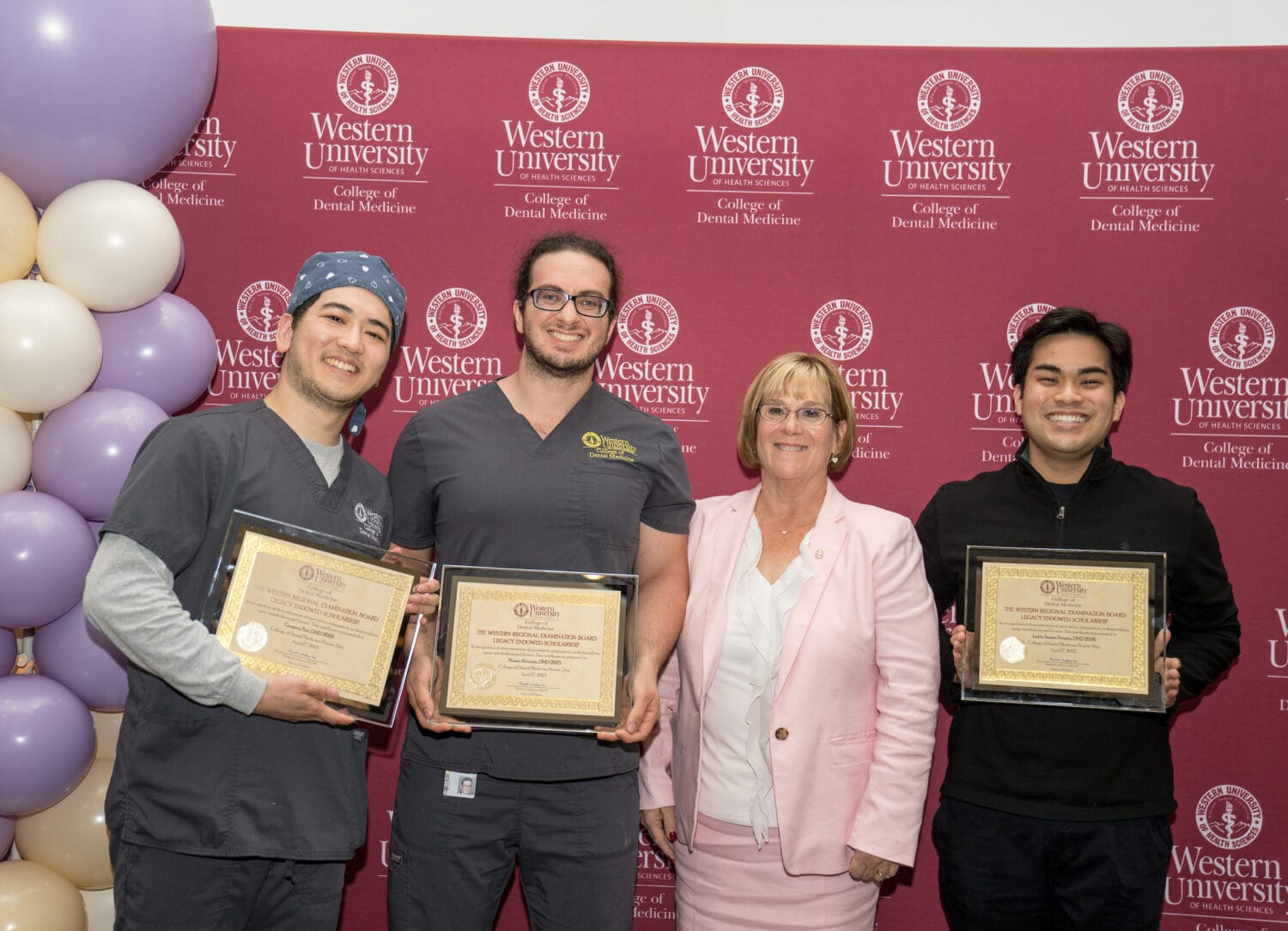Interprofessional WesternU research team wins AORN journal writers contest
An interprofessional team from Western University of Health Sciences was named the winner of the 2021 Association of periOperative Registered Nurses (AORN) Journal Writers Contest for the article “Demystifying the Institutional Review Board.”
The authors are WesternU College of Graduate Nursing Associate Dean and Professor Rodney W. Hicks, PhD, RN, FNP-BC, FAANP, FAAN; WesternU Pumerantz Library Scholarly Communications Librarian Kelli Hines, MLIS; and WesternU College of Dental Medicine Associate Dean and Associate Professor Bradley Henson, PhD, DDS. Their article was published in the October 2021 edition of the AORN Journal, for which Dr. Hicks served as the guest editor. Dr. Hicks will accept the award on behalf of the team at the AORN Surgical Conference & Expo in New Orleans, La., March 19-23, 2022.

“The AORN Journal is an important journal in perioperative nursing practice and publishes many clinical articles, original research articles, and quality improvement,” Hicks said. “The editors recognized in our article that the concepts transcend clinical practice, research practice, and quality improvement. Being recognized by a distinguished board of editorial members signals to me that our article would significantly contribute to perioperative practice. It brings me great joy that my peers recognize the efforts to advance perioperative safety. It furthers my joy knowing that we have such rich talent at CGN and WesternU.”
All eligible 2021 AORN Journal articles were evaluated by Journal editors, who based their reviews on such criteria as content, editorial quality, and relevance to perioperative practices and patient care, according to the AORN Journal Editor in Chief. Each winner will receive individual certificates of recognition as well as a $500 honorarium to be divided amongst the authors.
“So often, you write something, and it just goes into a black hole. You have no idea what people thought about it or if anyone even read it,” Hines said. “So it’s gratifying to hear that the intended audience found your work valuable and thought you conveyed your ideas well.”

To protect human participants during research activities, government regulations enacted after widely publicized research misconduct specify that institutions receiving federal funds must have an institutional review board (IRB) comprising at least five members.
“The IRB was originally established by Congress after a series of horrific abuses in the name of science and was meant to help rebuild that broken trust in scientific research,” Hines said. “That’s what people need to understand: it’s about creating that foundation of trust, first and foremost. It’s about protecting people.”
Some researchers may look at the IRB as needless red tape that blocks research progress, but it serves the greater purpose of protecting participants and enabling more robust research, Hines said.

“No one rejects a research proposal just for the fun of it. We want to approve your research and we want you to succeed – but we ultimately have a higher obligation to the research participants than to you, so you can’t view IRB approval as a rubber stamp. You need to bring your ‘A’ game,” she said. “And if you need help getting there – that’s normal and okay! Please ask! Ask early and ask often!”
Hicks serves as the chair of WesternU’s IRB. Henson was a past chair and mentored Hicks after he joined CGN. Hines is a non-scientific member.
“Yes, this article appeared in a nursing journal. However, the expertise from Dr. Henson and Kelli quickly highlighted that everyone on the IRB approaches research with a different lens,” Hicks said. “We all see the protocols coming in, but each of the team members has a different opinion. Our IRB is a safe place for the disciplines to come together and have a collegial discussion. That’s the power of interprofessional collaboration – the same goal in mind and recognizing that many paths lead to the goal.”



